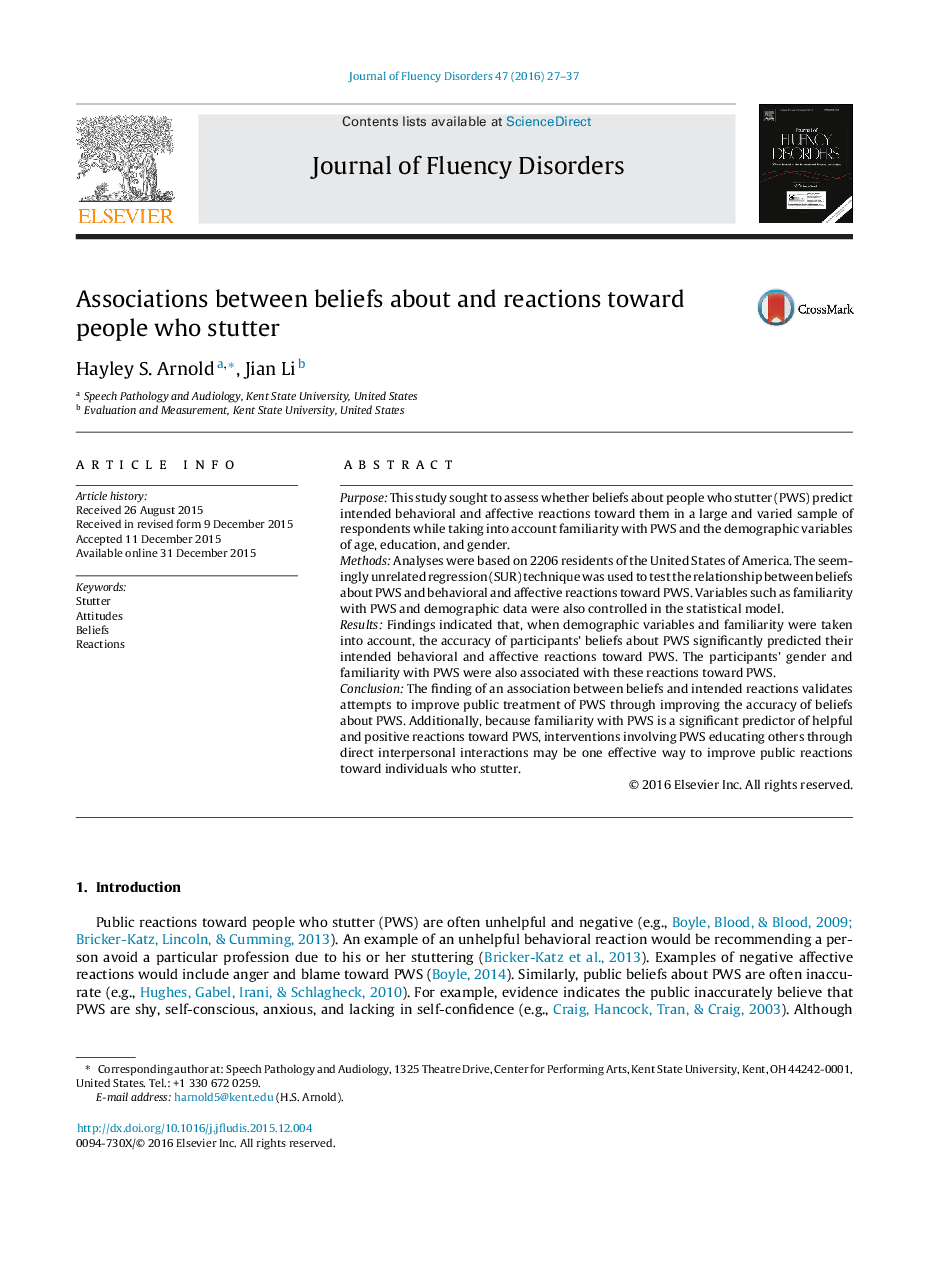| Article ID | Journal | Published Year | Pages | File Type |
|---|---|---|---|---|
| 911287 | Journal of Fluency Disorders | 2016 | 11 Pages |
•Beliefs about people who stutter (PWS) are significantly associated with reactions toward them.•Beliefs about the cause of stuttering best predicted helpful reactions toward PWS.•Beliefs about their potential for success best predicted affective reactions toward PWS.•Gender and familiarity with PWS were also associated with reactions toward PWS.
PurposeThis study sought to assess whether beliefs about people who stutter (PWS) predict intended behavioral and affective reactions toward them in a large and varied sample of respondents while taking into account familiarity with PWS and the demographic variables of age, education, and gender.MethodsAnalyses were based on 2206 residents of the United States of America. The seemingly unrelated regression (SUR) technique was used to test the relationship between beliefs about PWS and behavioral and affective reactions toward PWS. Variables such as familiarity with PWS and demographic data were also controlled in the statistical model.ResultsFindings indicated that, when demographic variables and familiarity were taken into account, the accuracy of participants’ beliefs about PWS significantly predicted their intended behavioral and affective reactions toward PWS. The participants’ gender and familiarity with PWS were also associated with these reactions toward PWS.ConclusionThe finding of an association between beliefs and intended reactions validates attempts to improve public treatment of PWS through improving the accuracy of beliefs about PWS. Additionally, because familiarity with PWS is a significant predictor of helpful and positive reactions toward PWS, interventions involving PWS educating others through direct interpersonal interactions may be one effective way to improve public reactions toward individuals who stutter.
